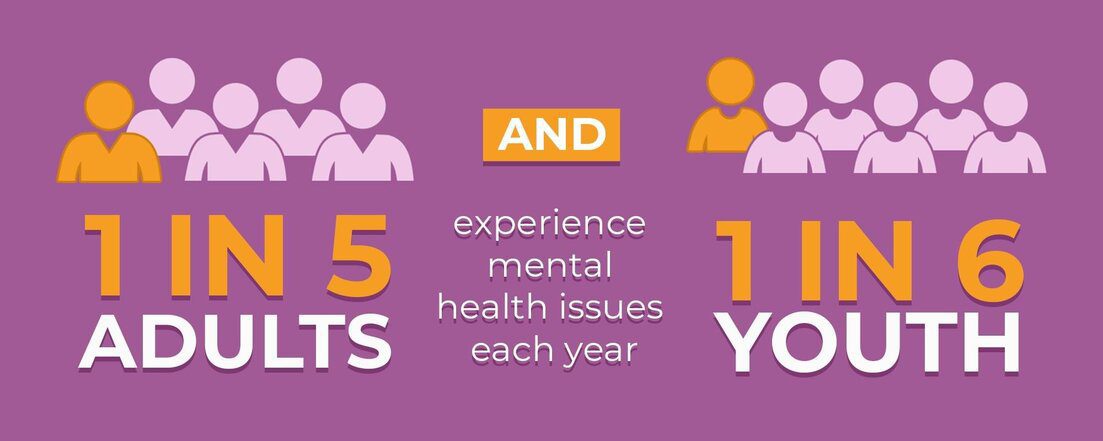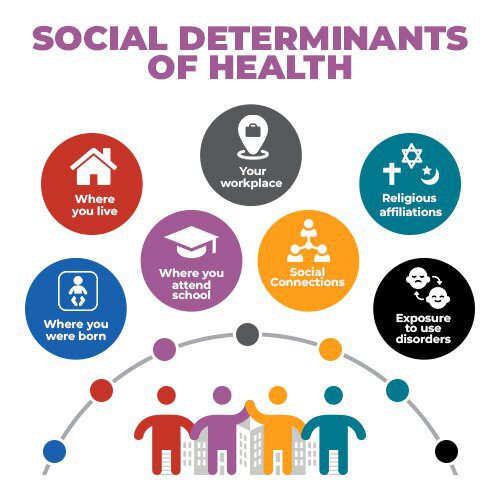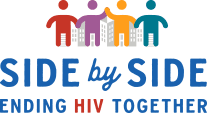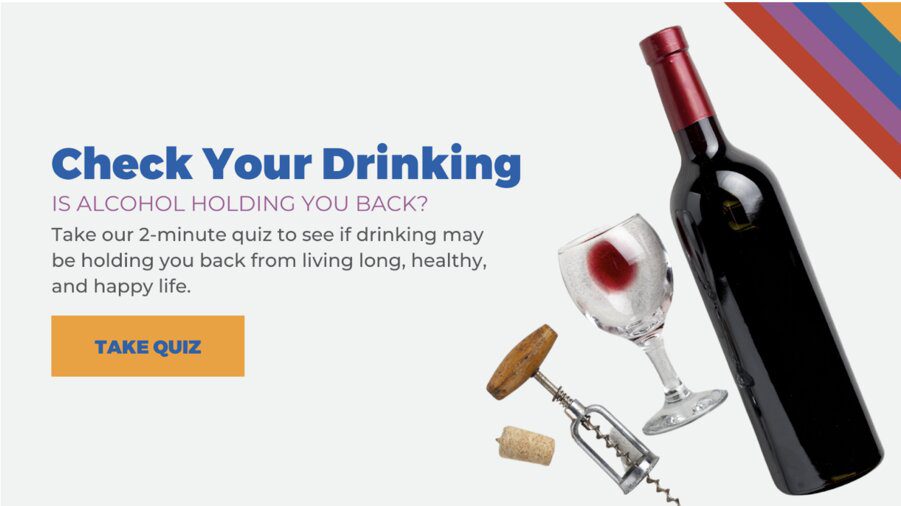May is Mental Health Awareness Month! Join us in the fight to combat mental illness and provide appropriate support and resources to those affected.
One way to help is by becoming well-informed about factors that affect mental health. Advocate for yourself and others by gaining knowledge and increasing your awareness.
The Meaning Behind Mental Health Month
Established by Mental Health America in 1949, this national movement aims to raise awareness about mental health. The goal is to fight stigma, provide support, educate the public, and advocate for policies that support people with mental illness and their families.

It is an essential step to improving the lives of the 1 in 5 adults and 1 in 6 youth in the United States who experience mental health issues each year.
The National Alliance on Mental Health or NAMI is also a fantastic resource for getting involved, raising awareness, or acknowledging Mental Health Month. NAMI believes that recovery and stability are possible and attainable.
Examining the meaning of NAMI’s core values is a great way to improve understanding and sensitivity regarding mental health issues and realize the vision behind National Mental Health Month.
- Inclusion means embracing all perspectives and backgrounds
- Empowerment means confidence and believing in one’s ability to thrive
- Compassion means having empathy and caring for others
- Fairness means justice and ensuring equity for all
Indeed, these ideals promote acceptance and have helped advance the treatment of mental health issues.
This year’s theme for Mental Health Month is Back to Basics which intends to focus on providing people with a foundational knowledge of mental health conditions and what first steps to take if they are concerned about their mental health.
Acknowledging Mental Health Month means celebrating the strides made in our understanding of mental health while acknowledging the next steps to continue advancing.
Mental Health Month is also an excellent opportunity to consider all the facets of health and wellness that affect you.
Health May Include More Than You Thought
Many factors play a role in someone’s health. These include things like age, sex, and genetic makeup. But did you know that it’s not just your physical and physiological conditions that determine your mental or physical wellness?
There are many things outside of your control that can affect your health. These are called social determinants of health. They have a significant impact on both your physical and mental well-being. They are mainly social and material aspects based on the distribution of money, power, and resources in our society.

These include things like:
- Where you were born
- Where you live
- Where you attend school
- Your workplace and job stability
- Social connections and interactions
- Religious affiliations
- Exposure to substance use disorders
These personal situations can influence health factors and affect your overall quality of life. We know social determinants of health impact physical health and mental wellness for individuals and different groups of people.
The Types of Health Determinants
Five main areas can affect someone’s health. If someone is mistreated in any of these areas, they will have unhealthy behaviors and conditions.
Let’s take a look at a few real-life examples.
Economic stability
Having a steady job means you are less likely to live in poverty. Poverty can make it hard to afford healthy foods, healthcare, and a safe place to live. It also increases stress levels, leading to a variety of health issues.
Education access and quality
If you have a good education, you are more likely to get a good job, which leads to better economic stability. Having a good education also means you are more likely to make healthy choices and better understand how to take care of your body.
Access to Healthcare
Having health insurance allows you to see doctors regularly, which helps you prevent serious illnesses. If you have a chronic disease, like HIV or Diabetes, it is crucial to have access to healthcare to manage your condition. If you cannot afford to see a doctor or do not have insurance, you may not get the care you need.
Neighborhood Environment
Living in a safe neighborhood helps ensure physical safety and security. Individuals who live in areas with high rates of violence, unsafe air or water, and other health and safety dangers are at risk for health problems.
Social and Community Context
Having positive relationships with your family, friends, coworkers, and community members can provide critical support and guidance. Families separated by tragedy, jail, or abusive situations often don’t have the necessary support from loved ones to be successful in other parts of their lives, like managing their health.
These social determinants of health show that some people have more opportunities to be healthy than others. They have better access to care, treatment, and support. These systematic differences in opportunity create harmful health conditions for many people in our community.
Because of their powerful influence, social determinants of health can also lead people to develop unhealthy behaviors.
Health Inequities Can Lead to Substance Use
People who suffer from social determinants of health, like poverty or racism, are more likely to have substance use disorders. Substance use disorders include problems with alcohol, tobacco, and other drugs.
There are many reasons why people might turn to substances. Some people might use substances to numb the pain of issues in their life, while others might use them to fit in or feel accepted among friends. Whatever the reason, substance use disorders are serious medical conditions that need treatment.
Substance use disorders can lead to various health problems, including liver disease, cancer, and overdoses. They can also lead to mental health problems, like anxiety and depression.
Excessive alcohol consumption is more common in people who experience social determinants of health. The more disadvantaged you are, the more likely you will struggle with alcohol use disorder.
Damaging health behaviors involving alcohol use are tied to social determinants of health. Social determinants of health can cause alcohol use disorder. Then the effects of alcohol-related harm can lead to an increase in the negative results of social determinants. For example, job loss, family disruption, or mental health issues brought on by alcohol can add to social disadvantages.
Alcohol use disorder also affects risks and treatment success for people living with HIV.
Alcohol-Related HIV Risks
Behaviors
Alcohol use does increase your chances of getting or sharing HIV. One of the most common issues of alcohol consumption is impaired judgment. Letting your guard down means allowing or accepting things or engaging in behaviors you usually wouldn’t do without if you weren’t drinking.
Alcohol can make it difficult to think clearly and make intelligent, responsible decisions. Impaired judgment leads to situations that can place you at a higher risk of getting or sharing HIV.
When under the influence of alcohol, you’re more likely to be lax about your sexual behaviors. This can lead to an increase in the number of partners and the misuse or lack of use of protection during sex.
Poor decision-making also includes the reluctance to share your HIV status before sex. During the heat of the moment, mixed with lower inhibitions, your HIV status may not be a subject you discuss. Alcohol can cause you to be careless and make decisions you usually wouldn’t.
Suppose heavy drinking regularly leads you to make poor decisions or gets you into unsafe situations. In that case, you should make routine HIV testing a habit. If you live with HIV, you should carry condoms and practice how you will talk about your HIV status before sex.
HIV Treatment
Although alcohol does not stop HIV medications from working, there are other ways drinking interferes with successful treatment.
Individuals living with HIV are already experiencing a weakened immune system. Alcohol use disorder can further compromise the immune system, increasing the risk of negative outcomes by making it harder to fight off common infections.
Struggling with alcohol use disorder also makes an individual more likely to miss essential doses of their medication. Because of alcohol’s effect on the brain and decision-making, forgetting or ignoring meds can happen when drinking.
Other Effects
Individuals living with HIV are at a higher risk of developing fatty liver disease. Fatty liver disease causes fats to build up in the liver and interfere with normal liver function.
Heavy drinking is also a common cause of fatty liver disease. Drinking while living with HIV compounds the risks of damaging the liver.
Prioritize Proper Care
It’s worth noting social determinants of health and how those social, economic, and environmental factors can affect you or your loved ones. Make the meaning of this month count by becoming well-informed about all issues that can impact health and mental well-being.
Make responsible decisions regarding your sexual behavior. Know about effective HIV prevention methods. Get tested and share your status with potential partners. Find free condoms in Indiana and commit to safe sex practices.
Get connected to support resources that can help lower your risks, provide support, and offer treatment. SIDE by SIDE offers a searchable resource guide where you can get help with HIV prevention and find other mental health and wellness services.
For support with use disorders, visit Drug-Free Marion County to find counseling and treatment resources in various formats and services. Other local treatment options are Indiana Addiction Treatment and Evolve Indy.






